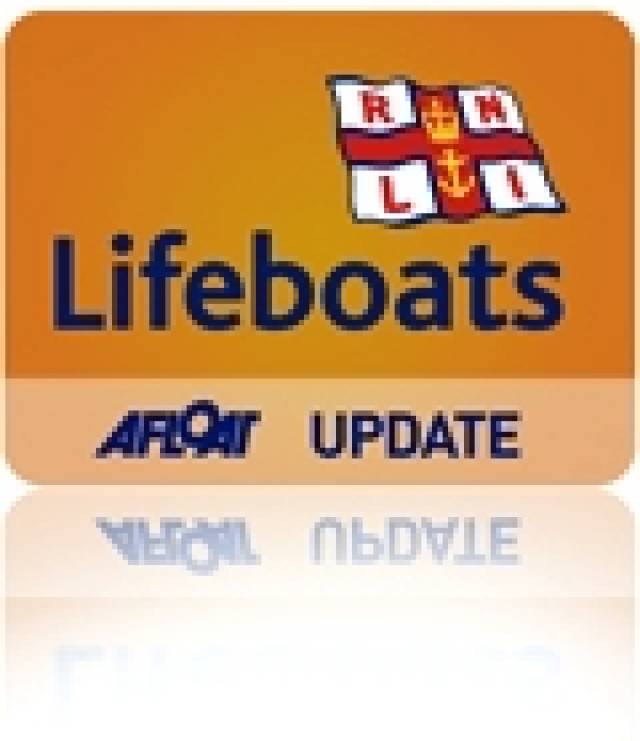#rnli – One Howth family gives 142 years dedicated service to saving lives with the RNLI.
As a charity, the Royal National Lifeboat Institution (RNLI) depends on the selfless dedication of volunteers, like the Duffys of Howth, to risk their lives to save others. They are brothers George (former mechanic and 2nd Coxswain, retired after 44 years), Jim (retired after 26 years), Robert (Coxswain, 37 years service), Michael (Deputy 2nd Coxswain, 30 years service) and their nephew Keith Glynn (5 years service).
Born and bred in Howth, the Duffys grew up in a maritime family aware of the thrills and perils of life at sea. The lifeboat was part of the culture of the town. As children their uncles, who were volunteer firemen in Howth, recounted their adventures which inspired the brothers to join the lifeboat crew. In turn their nephew Keith aspired to becoming a crew member like his uncles. 'I always looked up to them. Joining the crew was something I had planned to do from an early age'.
This Christmas as families and friends are gathering to celebrate together, lifeboat crews will be abandoning their dinners and their loved ones to head out into the cold December seas to rescue people in distress. They don't do it for money, nor do they do it for the glory. They do it because they have a deep seated desire to help people and a sense of duty to their local community.
The lifeboat crew function like a family unit, working seamlessly as a team. The sense of camaraderie is the glue that holds the crew together. Crewm embers put their lives on the line in challenging and dangerous sea conditions, sometimes spending days searching for a casualty. They undergo regular training in first-aid, sea survival skills, boat handling, radio communication and navigation to ensure that they are prepared to cope with the difficulties they face when saving lives at sea.
Some of the crew have worked as fishermen. There have been occasions when they have been called out to rescue friends and colleagues. Experiencing tragedies first-hand does condition crew members to an extent, but the sinking of boats such as the Kilkenny and the Scarlett Buccaneer, whose skipper and crew were known to the crew, resonates deeply. Jim described not being able to bring a casualty back alive as 'soul destroying'.
Crew members draw satisfaction from their sense of doing their bit for their community and helping people. Jim said, 'If you know you're after saving people that would have been drowned only for you were there - that's great to do that. It makes everything worthwhile'. Even in the midst of tragedy being able to bring someone home to their loved ones, so they have a grave to visit, brings some solace to the crew.
When George retired after 44 years as a volunteer with the RNLI, what struck him most was the 359 of lives he had helped to save, a remarkable legacy. He commented, 'The most difficult thing about leaving the crew was that I missed helping people day to day. For me, it was an honour and a privilege to be a member of Howth lifeboat crew'.































































